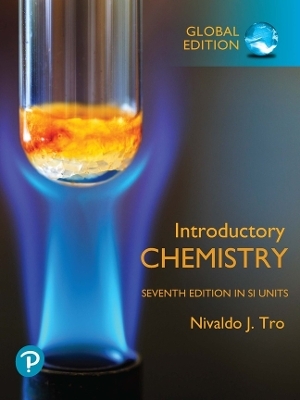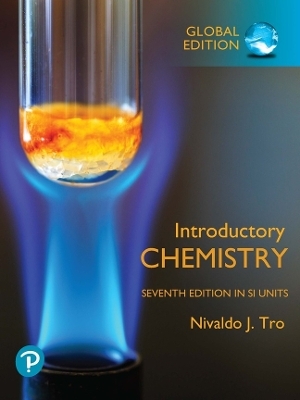
Molten Carbonate Fuel Cells – Modeling, Analysis, Simulation and Control
Wiley-VCH Verlag GmbH (Hersteller)
978-3-527-61132-4 (ISBN)
- Keine Verlagsinformationen verfügbar
- Artikel merken
Adopting a unique, integrated engineering approach, this text simultaneously covers all aspects of design and operation, process analysis, optimization, monitoring and control. It clearly presents the multiple advantages of molten carbonate fuel cells for the efficient conversion of energy, and also includes recent developments in this innovative technology. The whole is rounded off by an appendix featuring benchmark problems with equations and parameters. It is vital reading for process, chemical and power engineers, as well as those working in power technology, chemists and electrochemists, materials scientists, and energy supplying companies.
Kai Sundmacher studied mechanical and chemical engineering at the Universities of Hanover, Braunschweig and Clausthal. After gaining his PhD in 1995 and his lecturing qualification in 1998 from TU Clausthal, he was a postdoctoral researcher at the University of Newcastle-upon-Tyne, UK. In 1999 he became a full professor for Process Systems Engineering at the Otto-von-Guericke University of Magdeburg, and since 2001 he is also the Director for Process Engineering at the Max Planck Institute for Dynamics of Complex Technical Systems in Magdeburg. Professor Sundmacher's current research interests include integrated chemical processes, dynamics of particulate processes, and dynamics of fuel cell systems. Achim Kienle received his PhD and his lecturing qualification from the University of Stuttgart. He heads a research group on synthesis and dynamics of chemical processes at the Max-Planck-Institute for Dynamics of Complex Technical Systems in Magdeburg since 1998. In addition, he has held the chair for Automation/Modeling at the Department of Electrical Engineering and Information Technology at the Otto-von-Guericke University of Magdeburg since 2002. Professor Kienle's research interests include the synthesis and dynamics of integrated chemical processes, population balance modeling and dynamics of particulate processes, and dynamics and control of chemical plants. Hans Josef Pesch studied mathematics and physics at the University of Cologne, Germany, and obtained both his Ph.D. and his lecturing qualification from Munich University of Technology in 1978 and 1986, respectively. In 1987 he became a visiting professor at the University of California in San Diego. From 1988-1989 he held a professorship for mathematics and theoretical computer science at the University of the Armed Forces in Munich. After an extraordinary professorship at Munich University of Technology, he became a full professor for numerical mathematics and scientific computing at Clausthal University of Technology in 1995. Since 1999 he is a full professor for mathematics in engineering sciences at the University of Bayreuth. Professor Pesch has spent research stays at the universities in San Diego, Stanford, Berkeley, and Blacksburg as well as at the Academy of Sciences in Moscow and Warsaw. His current research interests include numerical mathematics, optimal control, scientific computing and technomathematics. Joachim Berndt studied mechanical engineering, materials engineering and welding technology. From 1960 on, he was an active engineer with different companies involved with process plant construction and power engineering. In 1983, he founded an engineering company for power and environmental engineering. He became speaker of the IPF Holding Company Berndt KG, Reilingen, Germany, in 1990. He works in the fields of planning, construction and contracting of combined heat and power plants (CHPs), power-heat-cold coupling plants as well as industrial and maritime fuel cell applications technologies. The physicist Gerhard Huppmann is working since more than 30 years in the field of energy technologies with a focus on high effective renewable and secondary energy utilizing systems. Since 1989 in the field of carbonate fuel cells he created basically the design of MTU's Carbonate Fuel Cell HotModule. Head of the group "New Fuel Cell Concepts and Applications" at MTU CFC Solutions GmbH, a company of Tognum group. The design of the HotModule was awarded for innovations and future applications sponsored by the German gas business sector. Member and convener of several working groups within the IEC fuel cell standardization work and convener of the working group investigating "Fuels for Fuel Cells" under the IEA Implementing Agreement "Advanced Fuel Cells", Annex 19. Presentations on international seminars and symposia and author of many articles concerning fuel cells and their applications.
Preface.List of Contributors.Part I Design and Operation.1 MTU's Carbonate Fuel Cell HotModule (Gerhard Huppmann).1.1 The Significance of Fuel Cells.1.2 Basic Statements of Power Production and Combined Heat and Power Systems.1.3 Fuels for Fuel Cells.1.3.1 Fuels Containing Gaseous Hydrocarbons.1.3.2 Synthesis Gases.1.3.3 Group of Gasified Hydrocarbons.1.3.4 Secondary Fuel.1.4 Why Molten Carbonate Fuel Cells.1.5 The Carbonate Fuel Cell and its Function.1.6 Optimisation by Integration: The HotModule Concept.1.7 Manufacturing.1.8 Advantages of the MCFC and its Utilization in Power Plants.1.8.1 Electrical Efficiency.1.8.2 Modularity.1.8.3 Inherent Safety.1.8.4 Environmentally Friendly - Pollution Free.1.8.5 Silent.1.9 History.1.9.1 The European MCFC Development Consortium.1.9.2 Continuing of the HotModule Development at MTU CFC Solutions.1.10 Possible Applications of MCFC Systems.1.10.1 Different Applications Using Different Fuels.1.10.2 Different Applications Using the Diffrent Products of the MCFC System.1.11 Economical Impacts.2 Operational Experiences (Mario Koch, Joachim Berndt, and Matthias Gundermann).2.1 Combined Heat and Power Plant of the Company IPF in Magdeburg.2.2 The HotModule in Magdeburg.2.3 Operation Experience.2.4 Results and Outlook.Part II Model-based Process Analysis.3 MCFC Reference Model (Peter Heidebrecht, and Kai Sundmacher).3.1 Model Hierarchy.3.2 General.3.3 Model Equations.3.3.1 Indirect Internal Reformer.3.3.2 Anode Channel.3.3.3 Combustion Chamber.3.3.4 Reversal Chamber.3.3.5 Cathode Channels.3.3.6 Electrode Pores.3.3.7 Solid Phase.3.3.8 Electric Potential.3.3.9 Reaction Kinetics.3.3.10 Thermodynamics.3.4 Summary.Bibliography.4 Index Analysis of Models (Kurt Chudej, Hans Josef Pesch, and Joachim Rang).4.1 Differential Time Index.4.2 MOL Index.4.3 Perturbation Index.4.3.1 Transformation to Homogenous Dirichlet Boundary Conditions.4.3.2 Abstract Problem.4.3.3 Perturbation Index.4.3.4 Garding-Type Inequality.4.3.5 Estimate for v and v.4.3.6 Estimate for u, w and w with Garding-Type Inequality.4.4 Conclusion.Bibliography.5 Parameter Identification (Matthias Gundermann and Kai Sundmacher).5.1 Experimental Work.5.1.1 Measurement of Cell Current and Cell Voltage.5.1.2 Temperature Measurement.5.1.3 Measurement of Concentrations.5.1.4 Measurement of Flow Rates.5.1.5 Conversion of the Measurements into Dimensionless Values.5.1.6 Measurement Errors.5.1.7 Measuring Campaigns.5.2 Strategy for Parameter Estimation.5.2.1 Determination of Relevant Parameters.5.2.2 Balancing of the Fuel Cell Plant.5.2.3 Sensitivity Analysis.5.2.4 Parameter Estimation for a Single Load Case.5.2.5 Parameter Estimation for the Whole Operating Range.5.2.6 Temperature Dynamics.5.3 Results of the Parameter Identification.5.3.1 Steady State Measurements.5.3.2 Plant Balancing and Error Minimisation.5.3.3 Parameter Estimation.5.3.4 Dynamic Measurements.5.3.5 Estimation of the Solid Heat Capacity.5.3.6 Evaluation of the Results.5.4 Summary.Bibliography.6 Steady State and Dynamic Process Analysis (Peter Heidebrecht, Matthias Gundermann, and Kai Sundmacher).6.1 Steady State Simulation.6.2 Current-Voltage Curve.6.3 Transient Simulation.6.4 Summary.Bibliography.7 Hot Spot Formation and Steady State Multiplicities (Michael Krasnyk, Michael Mangold, Achim Kienle, and Kai Sundmacher).7.1 Introduction.7.2 Models Nonlinear Analysis.7.2.1 Spatially Distributed Model.7.2.2 Lumped Model.7.3 Analysis of the Lumped FC Model.7.4 Analysis of the Spatially Distributed FC Model.7.5 Analysis of a More General High Temperature Fuel Cell Model.7.6 Conclusions.7.7 Appendix: Model Equations for Nonlinear Analysis.7.7.1 Equations of the Spatially Distributed Model.7.7.2 Equations of the Lumped Model.7.3.3 Model Parameters.Bibliography.8 Conceptual Design and Reforming Concepts (Peter Heidebrecht and Kai Sundmacher).8.1 Steady State Anode Model.8.1.1 General.8.1.2 Equations.8.1.3 Conversion Diagram.8.2 Applications of the Steady State Anode Model.8.2.1 Comparison of Reforming Concepts.8.2.2 Fuel Cell Cascades.8.2.3 Anode Exhaust Gas Recycling.8.2.4 Fuel Gas Sidefeed.8.3 Summary.Bibliography.Part III Optimization and Advanced Control.9 Model Reduction and State Estimation (Markus Grotsch, Michael Mangold, Min Sheng, and Achim Kienle).9.1 Introduction.9.2 Development of a Nonlinear Reduced Model.9.2.1 Choice of Basis Functions.9.2.2 Treatment of Boundary Conditions.9.2.3 Resulting Reduced Model of the HotModule.9.3 Investigation of Observability.9.4 Design of an Extended Kalman Filter.9.5 Simulation Results.9.6 Experimental Results.9.7 Conclusions.Bibliography.10 Optimal Control Strategies (Kati Sternberg, Kurt Chudej, and Hans Josef Pesch).10.1 Model and Simulation Setting.10.2 Mathematical Methods.10.3 Optimal Control of a Load Change.10.4 Summary and Conclusion.Bibliography.11 Optimisation of Reforming Catalyst Distribution (Peter Heidebrecht and Kai Sundmacher).11.1 Introduction.11.2 Objective Functions and Optimisation Parameters.11.3 Numerical Aspects.11.4 Results.11.4.1 Optimisation of Input Conditions at Constant Catalyst Density.11.4.2 Optimisation of the Reforming Catalyst Density Distribution.11.4.3 Optimisation of the Input Conditions for a System with Optimised Catalyst Density.11.5 Summary.Bibliography.Appendices.A List of Symbols.B Benchmark Problem: Complete Set of Equations and Parameters (Peter Heidebrecht).B.1 Equations.B.2 Parameters.Index.
| Verlagsort | Weinheim |
|---|---|
| Sprache | englisch |
| Maße | 170 x 240 mm |
| Gewicht | 665 g |
| Themenwelt | Naturwissenschaften ► Chemie |
| Technik ► Elektrotechnik / Energietechnik | |
| ISBN-10 | 3-527-61132-0 / 3527611320 |
| ISBN-13 | 978-3-527-61132-4 / 9783527611324 |
| Zustand | Neuware |
| Informationen gemäß Produktsicherheitsverordnung (GPSR) | |
| Haben Sie eine Frage zum Produkt? |
aus dem Bereich


